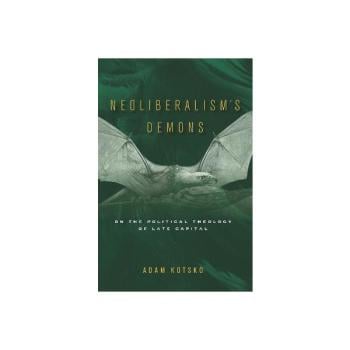Lectionary Reflections
Easter 1
Acts 4:32-35
Well, it is the season again where those of us who love the Hebrew Bible are shunted off the lectionary lists in favor of the book of the Acts of the Apostles. This state of affairs persists until the Sunday after Pentecost when our beloved First Testament makes a triumphant comeback (hold your breath until Isaiah 6 roars back for Trinity Sunday!). Still, it is important, I suppose, that we Hebrew Bible types announce our Christian bona fides on occasion by dipping our toes in the New Testament. After all, there is some good stuff in there, too, as we must admit.
And Acts 4:32-35 is indeed good stuff. It has been characterized as either a rich call to a serious Christianity or the dangerous call to a life of socialism, which appears to have become the newest bogeyman in the closets of certain right-wing politicians. Well, which is it: Christianity at its most demanding or Karl Marx on steroids? Or neither? Or both? Let's look at it again and try to divest ourselves of our ideological blinders, however difficult that may be.
This is a portion of a longer text that proclaims that the Christian community was growing and flourishing, having been constituted by the Pentecost gift of multiple languages that enabled all who were present to hear and understand the gospel being spoken (Acts 2:6). Now Luke goes on to describe just how this Holy Spirit enables the new community to live together. In 4:31, in the midst of their common prayer, "the place where they were gathered was shaken. They were filled with the Holy Spirit and were speaking the word of God with boldness." It is not surprising that Luke emphasizes throughout his Acts that the gospel needed to be proclaimed with boldness, with no sense of timidity. After all in his first volume, his Gospel, the disciples were far less than bold, but rather ran away and even denied their knowledge of Jesus at all. But now, his astonishing resurrection has emboldened them to speak his gospel.
And as a result of this bold conviction of the new power they have received from the Spirit, "the assembly of believers had one heart and soul." Their unity of purpose and action is characteristic of the earliest community, and that unity is played out in the quite amazing fact that "not any one of them" had "something to call one's own. Instead, they had everything in common" (4:32). This commonality of possession is followed by the statement that "the apostles were bearing witness to the resurrection of the Lord Jesus with great power. And great favor was on all of them" (4:33). We should note the connection of these two statements: the apostles were bearing witness to the resurrection precisely by "holding all things in common." The fact of common possessions has less to do with some chosen system of economics than with the appropriate response to the power of the resurrection of Jesus. The apostles hold all their goods in common so as to better witness to the resurrection of the one they called Lord. As a further result, God's great favor comes upon them.
But 4:34 offers the clearest reason why they found it necessary to hold all in common; they were primarily concerned that there be no one needy among them. "Whoever owned fields or possessed houses sold them, and carrying the proceeds from the things sold, laid them at the feet of the apostles" (4:34-35a). These actions are a certain allusion to Deuteronomy 15:4 (you knew I would get the Hebrew Bible in here somewhere!): "When YHWH God blesses you in your land, there will be no needy person among you." Indeed, Deuteronomy 15:1-18 has primarily to do with the sharing of possessions. Luke thus proclaims that the new community of the resurrected Lord has heard the voice of the prophet announced by Deuteronomy, is making certain that there is no needy person among them, and is thereby enjoying the blessings promised by God to those who so act. The Christian community is thus fulfilling what had been promised to and demanded from the people of Israel some 700 years earlier.
Then come the words made most famous in our own time by the German philosopher and founder of modern Communism, Karl Marx. Marx wrote in his huge manifesto, Das Kapital, the only economic system that can function for the betterment of all is one that attends to the needs of all. Hence, he stated, "From each according to his ability, and to each according to his need." Such a claim is rooted squarely in this text from Acts. However, I think it is fair to say in 2012 that such a supposed "system" has not been successful on the vast scale of nation-states. Indeed, the seventy-year Soviet command economy has failed, and the last two remaining centralized economies, North Korea and Cuba, always seem to be on the verge of collapse. By contrast the community of the early Christians was small and sharply focused on equalization of goods as the community saw fit.





